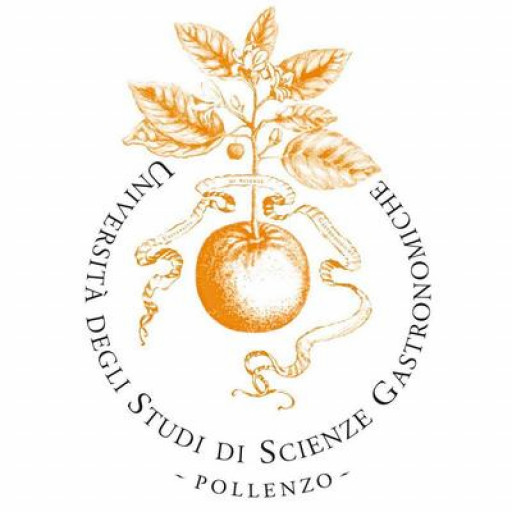Photos of university / #swanseauni
Management (Tourism) at Swansea University offers a comprehensive and dynamic program designed to equip students with the knowledge and skills necessary to excel in the global tourism industry. This innovative course combines core principles of management with specialized insights into the tourism sector, providing a unique educational experience that prepares graduates for a wide range of career opportunities in tourism, travel, hospitality, and related industries. Throughout the program, students explore key areas such as strategic management, marketing, tourism development, sustainable tourism practices, and the economic and cultural impacts of tourism activities worldwide. The curriculum emphasizes practical learning through case studies, industry projects, and work placements, enabling students to apply theoretical concepts to real-world scenarios.
Students will benefit from Swansea University's strong links with industry partners, supporting placements and networking opportunities that enhance employability. The programme is delivered by experts in the field, incorporating the latest research and industry trends to ensure graduates are well-prepared for the evolving tourism landscape. Additionally, the course fosters critical thinking, problem-solving, and leadership skills essential for managerial roles in tourism organizations. The programme also offers opportunities for specialization in areas such as digital marketing for tourism, event management, or sustainable tourism development.
Flexible study options, including full-time and part-time modes, enable students to tailor their learning experience to their personal and professional commitments. Swansea University's vibrant campus environment, combined with access to state-of-the-art facilities and resources, provides an enriching student experience. Graduates of the Management (Tourism) program are equipped not only with a solid academic foundation but also with the practical expertise needed to develop innovative solutions and effectively manage tourism businesses in a competitive global market. Whether pursuing careers in tourism management, consultancy, policy development, or entrepreneurship, students will leave with the confidence and skills to succeed and make a positive impact in the industry.
You will study a range of modules in semesters one and two of this course, before undertaking an independent project/dissertation in your third semester. Modules typically include: Human Resource Management, Strategy, and Managing and Marketing Tourist Experiences.
Compulsory modules
- Dissertation (Directed Independent Learning)
- Managing Financial Resources
- Human Resource Management
- Marketing Management
- Operations Management
- Strategy
- Research Methods
- Managing and Marketing Tourist Experiences
- Tourism Study Tour
Students must attain a 2:2 (or overseas equivalent) in an undergraduate degree. Any degree subject will be considered.
We consider all applications on their merits and will look at each individual case before making an offer so students who fall slightly short of the entry criteria should still apply to the School of Management. Non-native English speakers must achieve an IELTS score of 6.0 overall with no component less than 5.5.
For students who fall short of only the English language requirement, we offer a range of Pre-Master's training programmes that you may take before starting your Master's qualification. For students who fall significantly short of the general entry requirement, we offer a Pre-Master's programme via The College, Swansea University that will allow you entry on to our postgraduate programmes.
The Management (Tourism) bachelor's degree program at Swansea University offers a range of financing options to support students throughout their studies. The primary sources of funding include government-backed student loans, which are available to eligible domestic students, enabling them to cover tuition fees and living expenses. Undergraduate students can apply for tuition fee loans from Student Finance England, which are repaid after graduation based on income level, thereby alleviating immediate financial burdens. Additionally, students may access maintenance loans to support their living costs during the academic year, facilitating a more manageable financial planning process. For international students, Swansea University provides various scholarship opportunities, including merit-based awards and bursaries designed to reduce the financial impact of international tuition fees, which are generally higher than those for domestic students. Furthermore, the university encourages students to explore external funding sources such as private scholarships, sponsorships, and bursaries provided by external organizations and government bodies. Some students opt for part-time employment opportunities, including on-campus jobs, which are available to help fund their studies without interfering with academic commitments. Swansea University also offers financial advice services to assist students in planning their budgets and understanding available financial support options. The university's dedicated financial aid office guides prospective and current students through the application processes for loans, grants, and scholarships, ensuring they are informed about all available funding streams. In addition, for students enrolled in the Management (Tourism) program, there may be industry-specific scholarships or internships that provide monetary support while offering practical experience relevant to their field of study. Overall, Swansea University aims to make education accessible by providing multiple financial support channels to help students achieve their academic and career goals in the tourism management sector.
Management (Tourism) at Swansea University offers a comprehensive academic program designed to equip students with a deep understanding of the principles of management within the tourism industry. This program combines core management theories with specialized knowledge pertinent to tourism, hospitality, and related sectors. Students will explore topics such as strategic management, marketing, sustainable tourism, hospitality operations, and the global tourism industry. The curriculum is crafted to develop vital skills including leadership, communication, analytical thinking, and problem-solving, preparing graduates for dynamic roles in the tourism sector. The program benefits from Swansea University's strong links with industry partners, providing opportunities for internships, practical projects, and networking, which enhance employability after graduation. The course structure usually includes lectures, seminars, workshops, and field trips, offering a blend of theoretical and practical learning. Students are encouraged to develop an entrepreneurial mindset and an understanding of the social, economic, and environmental impacts of tourism development. The program often incorporates research projects and coursework that promote critical thinking and independent learning. Swansea University’s modern facilities, dedicated academic staff with industry experience, and vibrant student community contribute to a supportive learning environment. Graduates from this program have gone on to work in roles such as tourism management, event coordination, hospitality services, marketing, and consultancy, both within the UK and internationally. The program aims to produce highly competent professionals capable of addressing the challenges of the contemporary tourism industry, including sustainability issues, digital transformation, and market diversification. Overall, Management (Tourism) at Swansea University prepares students for a successful career in a global, fast-paced, and ever-changing industry by providing them with a solid academic foundation combined with practical experience.









